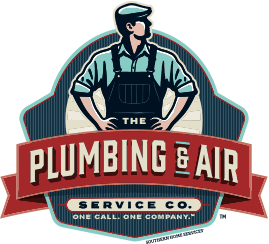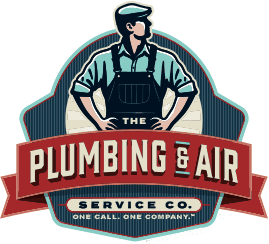Sooner or later, your water heater will fail, and it will be time for a new one. However, not all water heaters are created equal, and today, you have more options than ever to choose from.
Unless it’s an emergency, read this handy buying guide before you call your plumber so you’ll know better what type of water heater is right for your home, and what features you think you’d like to have.
Types of Water Heaters: Tankless vs. Traditional
The first thing to consider is the type of water heater you want to install. Nowadays, you have several options, but the two most common are the traditional water heater that uses a storage tank and the tankless water heater. Let’s break these down and see how they stack up to one another.
Storage Tank Water Heater
The most common water heater found in American homes is the conventional water heater or storage tank heater that uses a storage tank to hold water, and a fuel source such as gas, propane or electric to heat the water. Water fills the tank and then is heated until it’s ready for use.
The conventional water heater is a good choice because it’s easy to maintain and reliable if you go with a name brand such as Rheem or Ruud. If you take care to flush the tank to remove sediment build up at least once a year, these water heaters can last for up to 15 years or longer.
Also, storage tank heaters can supply multiple streams of hot water without weakening the flow or the amount of hot water to each stream. So, let’s say you’re washing dishes and your kid wants to take a hot shower, both of you can get the same hot water at the same level of flow.
Another advantage to the storage tank water heater is that they’re easy to install, are cheaper than other systems, and it’s easier to get help with repairs because of their commonality.
Now, the downside to a traditional water heater is that you can run out of hot water once the tank is empty, and you must wait for it to fill again before you get more hot water. Depending on how large is the tank, you could wait a long time for hot water. Also, if your water heater is powered by electricity, you’re out of luck during a power outage.
Tankless Water Heater
Tankless water heaters have been around for decades, but they’re becoming more and more popular every year.
Tankless water heaters work by piping cold water into the unit and then rapidly heating the water either with gas or electricity.
What makes these water heaters so popular is that, in theory, you have unlimited hot water since the water is being heated as you need it. Also, tankless water heaters last longer than their storage tank counterparts.
Reputable brands such as Rinnai can last up to 20 years with routine maintenance. Also, tankless water heaters are small, which makes them ideal for homes where space is limited.
Last, tankless water heaters are more energy efficient than conventional water heaters, which saves money year over year on your energy bills. The downside to tankless systems is that the upfront price tag is much higher.
Also, unlike storage tank systems, you can only run one good stream of hot water at a time unless you’re investing in multiple tankless systems for your home. So, it’s difficult for multiple people to use hot water all at once with these models.
Consider Tank Size & Fuel Source
How Large of a Tank Do You Need?
When looking at a storage tank water heater, you must figure out what size tank works best based on the size of your family and your hot water needs. If you have a family with 1-2 people, a 30-gallon tank will suffice. If you have a family of 2-3 people, look at a 50-gallon tank. And, if you have a family of 5 or more people, consider an 80-gallon tank. If you’re still not sure, our plumbing professionals can assist you.
Another thing to note when you’re looking at a conventional water heater is what’s called the ‘first-hour rating’, which refers to how many gallons of hot water the tank can produce in an hour when the tank is full. If there are many people in your household who all need to take hot showers first thing in the morning, this number will determine how effective your water heater is at meeting the demand.
Electric, Gas or Other?
Most water heaters are fueled by either gas, propane or electricity, and while you may have only one option in your home, it’s good to know which one is better if you have the choice.
The first priority on your list before choosing what fuel type you go with is energy efficiency. Look for an energy efficient water heater regardless of whether it’s gas or electric. An efficient water heater will be cheaper to operate year over year, and it’ll do a better job of giving you the hot water when you need it.
Gas vs. Electric
According to most data, a gas water heater is cheaper to operate than electric. While rates vary a gas water heater costs about $30 a month to use while an electric water heater costs upwards of $42. While not a huge difference that money adds up at the end of the year.
However, gas water heaters are generally more expensive to buy than electric and can be more difficult to install, so while you’re saving money month over month with a gas unit, you’re spending more in up-front costs.
It’s also worth noting that electric heaters are more energy efficient than gas because gas heaters lose heat through venting.
And while both are safe to use, electric heaters don’t have fuel that can leak and they have no combustible parts. To put it bluntly, you never have to worry about your electric heater blowing up.
Also consider that gas water heaters provide you with hot water during a power outage, while you’re out of luck if your water heater is electric. Now that we’ve discussed the two main types of water heaters, let’s look at some additional models you might consider.
Solar Water Heaters
If you’re environmentally conscious, then a solar water heater might be worth a look. The way these water heaters work is by mounting a solar cell on your roof which absorbs heat from the sun. It sends the heat to a closed loop system that uses a fluid much like antifreeze which runs down do your tank to provide you with hot water.
The major downside to this is that if you live in an area that is frequently overcast, a backup system is needed to ensure you get hot water when the solar doesn’t work.
Heat Pump Water Heaters
Much like the heat pump in your home, this water heater captures heat from the air and uses it to heat the water. This can be a good option if you’re energy conscious because they use less energy than your typical electric water heater, however, they do cost more to install than your traditional water heater.
A Word About Fuel Types
Most people are fortunate enough to have multiple options for fuel when purchasing a water heater. In many neighborhoods, residents can choose from natural gas, propane, or electricity. What’s important to keep in mind is that you compare the costs for each source, especially if you’re building a home because it’s tougher to change fuel types for your water heater once it’s in place. Check the rates for each fuel source available to you and then see which type of heater matches best with your budget.
When Is the Right Time to Replace a Water Heater, Anyway?
No one thinks much about their water heater until there’s a problem. And a water heater can run for years without an issue. But, like any appliance, they fail eventually, and sometimes that failure can be catastrophic.
So, to avoid coming home to a flood because the water tank sprung a leak, here are a few things you can look out for that signal that your water heater is about to fail and that you need a replacement.
• The Age Modern water heaters are rated to last about 15 years, and if you don’t know when your water heater was installed, or if it’s over 15 years old, chances are it’s getting close to the end of its life.
• Rust Colored Water If you turn on your faucet expecting hot water to come out, but get rust colored water instead, it’s a sign that there’s corrosion and sediment building up within the tank.
• Lukewarm Water If the water isn’t as hot as it used to be, it’s a sign that your water heater is failing and in need of replacement.
• Strange Noises As sediment builds up in your water tank, it can make loud popping or cracking sounds, which indicates the heating elements have buildup on them.
• Leaks Last, if your water tank is leaking, it’s an emergency situation and you need to call a plumber right away.
Water Heater Costs, Tax Credits & Making the Final Decision
How Much do Water Heaters Cost?
According to HomeAdvisor.com the average cost of a 40-50 gallon storage tank water heater is $889 and for a tankless water heater, it’s around $3,000.
However, you should be aware that some water heaters qualify for a tax credit, so while the upfront cost might be a little tough to swallow, just know you can make that up come tax time.
Which Water Heaters Qualify For Tax Credit
According to EnergyStar.gov, water heaters that are Energy Star certified, whether they be electric or gas, qualify for a tax credit of $300.
Which Water Heater is the Best?
If you’re looking for an electric storage tank water heater, one of the top models you can get is the Rheem Performance Platinum Hybrid.
This tank is up to four times more efficient than standard electric hot water heaters and it’s estimated that it can save the average homeowner up to $4,000 in energy bills over ten years.
Rheem also sells this same water heater in a gas-fueled variety so consumers with gas can get the same benefits. On the tankless side, one of the best models is the Rinnai RUC98In. According to the company, this is one of their most efficient models and offers a height flow rate of 9.8 GPM.
The water heater you buy should be enough to meet the demands of your family. Getting a smaller, cheaper model might look good on paper, but you might regret your decision when you go to take a hot shower and the hot water is all gone.
Tankless models are great for small spaces and small families while a storage tank heater is great for homes that have high hot water demands. Consult with your local plumbing professional and see what they recommend.
There's No One Size Fits All Solution - It's About Your Needs!
At The Plumbing & Air Service Co., we’re committed to helping you get the perfect water heater for your needs at the price you can afford. Not only can we recommend a water heater based on your household requirements, but we’ll happily install it to code so you can have peace of mind that it is running properly and efficiently.
If you a traditional storage tank suits you best, we carry a full range of Rheem and Ruud water heaters. And if a tankless water heater is the better option, we also have a great selection of Rinnai tankless systems and will custom order the right unit to fit your household needs.
Keep in mind that no matter what you do, your water heater is another appliance that will fail eventually. And when it does, we want to be the plumber you can rely on to get you fitted with a replacement as quickly as possible. With a little help and some research, you can be sure you’ll get the perfect water heater for your family’s needs and at a price you can afford.


